Dear Reader,
Forgive an instance of self indulgence, but this edition of my occasional column, “Recommended Books” is all about, well, me. These are (in chronological order from older to newer) what I think are my favorite books among the ones I authored. Hopefully you’ll find at least some of them stimulating.
Answers for Aristotle: How Science and Philosophy Can Lead Us to A More Meaningful Life (Basic Books, 2012). How should we live? According to philosopher and biologist Massimo Pigliucci, the greatest guidance to this essential question lies in combining the wisdom of 24 centuries of philosophy with the latest research from 21st century science. In Answers for Aristotle, Pigliucci argues that the combination of science and philosophy first pioneered by Aristotle offers us the best possible tool for understanding the world and ourselves. As Aristotle knew, each mode of thought has the power to clarify the other: science provides facts, and philosophy helps us reflect on the values with which to assess them. Pigliucci discusses such essential issues as how to tell right from wrong, the nature of love and friendship, and whether we can really ever know ourselves—all in service of helping us find our path to the best possible life. Combining the two most powerful intellectual traditions in history, Answers for Aristotle is a remarkable guide to discovering what really matters and why.
How to Be a Stoic: Using Ancient Philosophy to Live a Modern Life (Basic Books, 2017). Whenever we worry about what to eat, how to love, or simply how to be happy, we are worrying about how to lead a good life. No goal is more elusive. In How to Be a Stoic, I offer Stoicism, the ancient philosophy that inspired the great emperor Marcus Aurelius, as the best way to attain it. Stoicism is a pragmatic philosophy that teaches us to act depending on what is within our control and separate things worth getting upset about from those that are not. By understanding Stoicism, we can learn to answer crucial questions: Should we get married or divorced? How should we bank in a world nearly destroyed by a financial crisis? How can we survive great personal tragedy? Whoever you are, Stoicism has something for you — and How to Be a Stoic is your essential guide, featuring an ongoing conversation with the ancient slave-turned-teacher Epictetus.
Nonsense on Stilts: How to Tell Science from Bunk (second edition, University of Chicago Press, 2018). In this era of fake news and alternative facts, there is more bunk than ever. But why do people believe in it? And what causes them to embrace such pseudoscientific beliefs and practices? In this fully revised second edition, noted skeptic Massimo Pigliucci sets out to separate the fact from the fantasy in an entertaining exploration of the nature of science, the borderlands of fringe science, and—borrowing a famous phrase from philosopher Jeremy Bentham—the nonsense on stilts. Presenting case studies on a number of controversial topics, Pigliucci cuts through the ambiguity surrounding science to look more closely at how science is conducted, how it is disseminated, how it is interpreted, and what it means to our society. The result is in many ways a “taxonomy of bunk” that explores the intersection of science and culture at large. Broad in scope and implication, Nonsense on Stilts is a captivating guide for the intelligent citizen who wishes to make up her own mind while navigating the perilous debates that will shape the future of our planet.
A Handbook for New Stoics: How to Thrive in a World Out of Your Control, by Massimo Pigliucci and Gregory Lopez (The Experiment, 2019). An ancient belief system made new, Stoicism teaches us how to accept the things we cannot change and how to live a good life. It helps us improve our outlook, increase our wellbeing, and thrive in the face of adversity. But how does one live like a Stoic? In A Handbook for New Stoics, renowned philosopher Massimo Pigliucci and practitioner Gregory Lopez guide readers through 52 weekly lessons, each based on a common obstacle. Stressing out about a meeting at work? Try listing the things you can control and those you can’t. Epictetus writes: “In our power are thought, impulse, will to get, and will to avoid”—in other words, our own attitudes. Discover what you can control, and quickly achieve peace of mind. Featuring quotes from philosophers, analysis by the authors, and journaling activities, these lessons enable readers to reframe their perceptions and be happier.
A Field Guide to a Happy Life: 53 Brief Lessons for Living (Basic Books, 2020). For more than two thousand years, Stoicism has offered a message of resilience in the face of hardship. Little wonder, then, that it is having such a revival in our own troubled times. But there is no denying how weird it can be: Is it really the case that we shouldn’t care about our work, our loved ones, or our own lives? According to the old Stoics, yes. In A Field Guide to a Happy Life, philosopher Massimo Pigliucci offers a renewed Stoicism that reflects modern science and sensibilities. Pigliucci embraces the joyful bonds of affection, the satisfactions of a job well done, and the grief that attends loss. In his hands, Stoicism isn’t about feats of indifference, but about enduring pain without being overwhelmed, while enjoying pleasures without losing our heads. In short, he makes Stoicism into a philosophy all of us — whether committed Stoics or simply seekers-can use to live better.
The Quest for Character: What the Story of Socrates and Alcibiades Teaches Us about Our Search for Good Leaders (Basic Books, 2022). Is good character something that can be taught? In 430 BCE, Socrates set out to teach the vain, power-seeking Athenian statesman Alcibiades how to be a good person – and failed spectacularly. Alcibiades went on to beguile his city into an idiotic war with Sparta, and all of Athens paid the price. In The Quest for Character, philosophy professor Massimo Pigliucci tells this famous story and asks what we can learn from it. He blends ancient sources with modern interpretations to give a full picture of the philosophy and cultivation of character, virtue, and personal excellence—what the Greeks called arete. At heart, The Quest for Character isn’t simply about what makes a good leader. Drawing on Socrates as well as his followers among the Stoics, this book gives us lessons perhaps even more crucial: how we can each lead excellent lives.



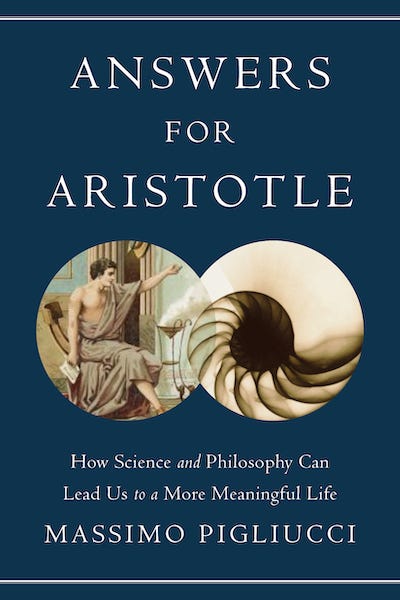
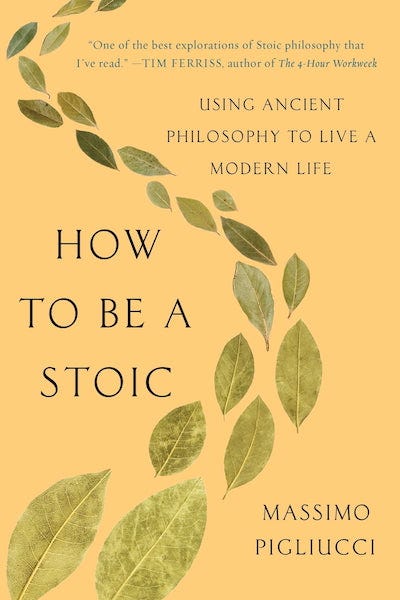
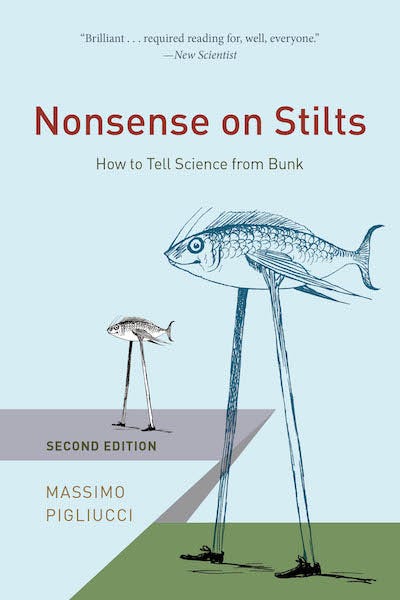
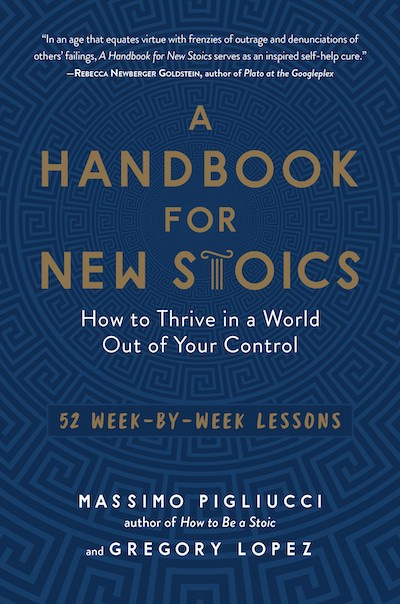
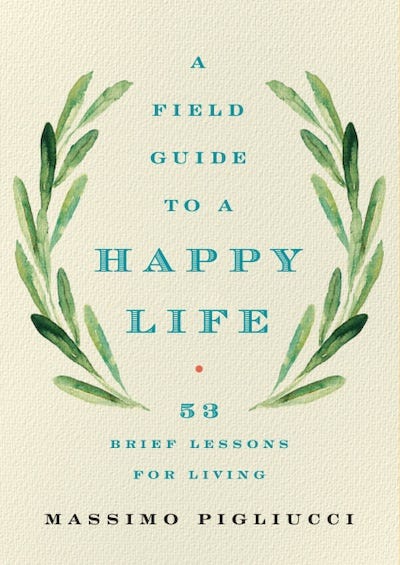
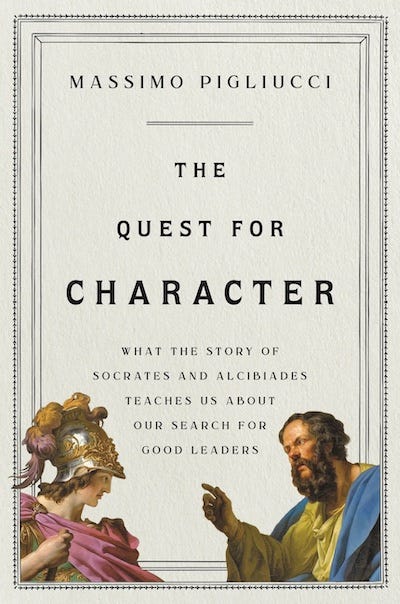
And don't forget Tales of the Rational!
Hey, I actually know that author!